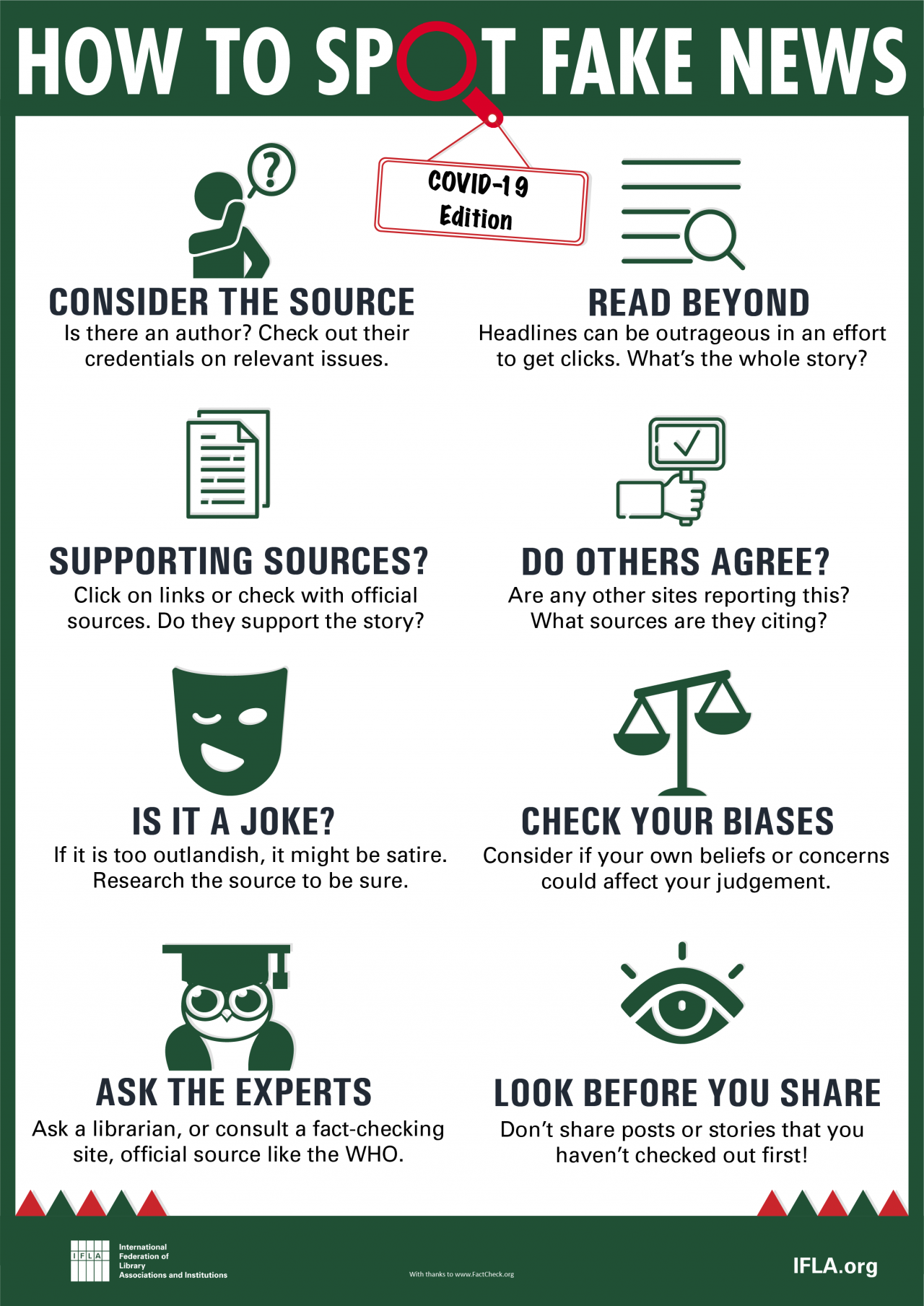It is important to examine the credibility of a resource prior to using the information in a research paper. Questions to think about while reviewing articles:
- Who wrote the article?
- What are their credentials?
- Where did you find the information? Does the website end in .edu or .gov (EDU is an abbreviation for education and GOV is an abbreviation for Government). For example, North Carolina Agricultural and Technical State University, College of Engineering website is https://www.ncat.edu/coe/
- Is the content organized, unbiased and reliable?
It's easy to fall into the trap of biased searching, that is, retrieving resources that agree with our personal viewpoints. This however, needs to be avoided at all cost! Be sure to check out this one-minute video on "How to Avoid Biases in Your Searches."
PM

Currency: The timeliness of the information.
When was the information published, posted, revised or updated?
Does your topic require current information, or will older sources work as well?
Are the links functional and current?
Relevance: The importance of the information for your needs.
Does the information relate to your topic or answer your question?
Who is the intended audience?
Is the information at an appropriate level (i.e. not too elementary or advanced for your needs)?
Have you looked at a variety of sources before determining this is one you will use?
Would you be comfortable citing this source in your research paper?
Authority: The source of the information.
Who is the author/publisher/source/sponsor?
What are the author's credentials or organizational affiliations?
Is the author qualified to write on the topic?
Is there contact information, such as a publisher or email address?
Does the URL reveal anything about the author or source (examples: .com .edu .gov .org .net)?
Accuracy: The reliability, truthfulness and correctness of the content.
Where does the information come from? Are references and citations provided?
Is the information supported by evidence?
Has the information been reviewed or refereed?
Can you verify any of the information in another source or from personal knowledge?
Does the language or tone seem unbiased and free of emotion?
Are there spelling, grammar or typographical errors?
Purpose: The reason the information exists.
What is the purpose of the information? Is it to inform, teach, sell, entertain or persuade?
Do the authors/sponsors make their intentions or purpose clear?
Is the information fact, opinion or propaganda?
Does the point of view appear objective and impartial?
Are there political, ideological, cultural, religious, institutional or personal biases?
Adapted from the CRAAP Test created by Meriam Library at California State University, Chico
 Skip to Main Content
Skip to Main Content
